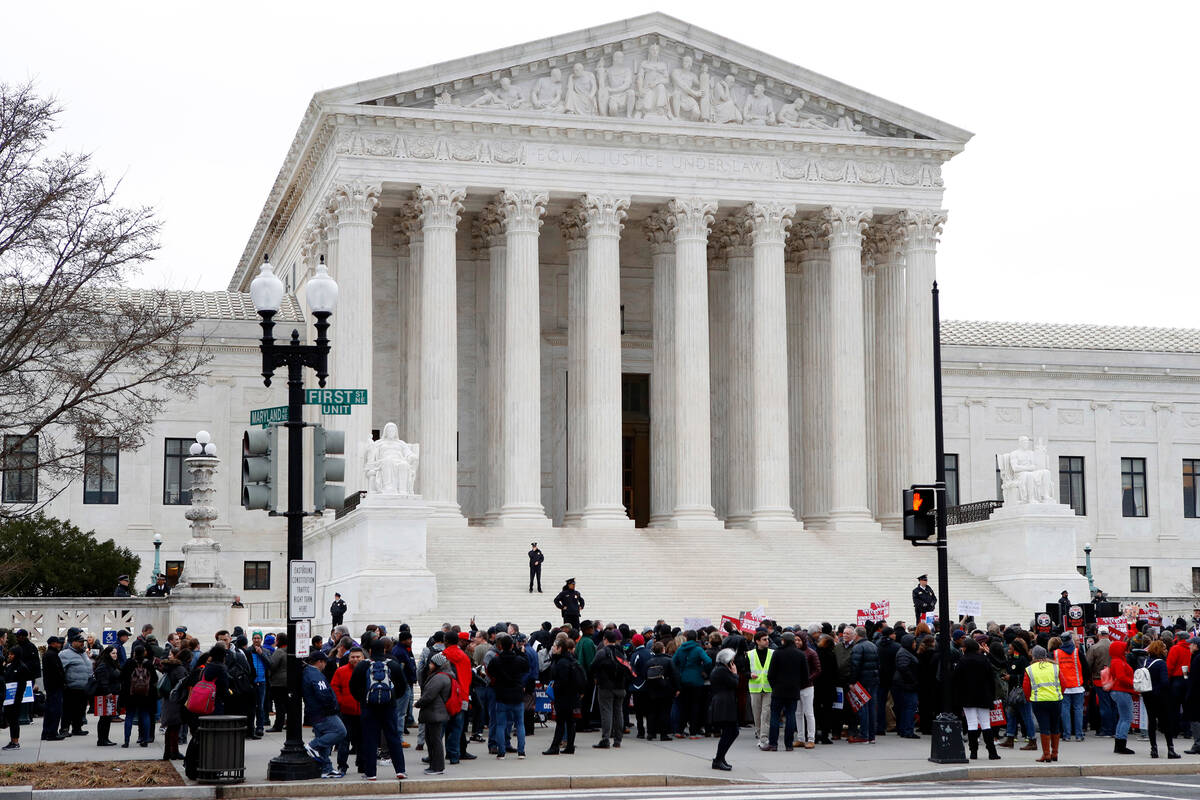EDITORIAL: High court can end legalized looting
Pity the attorney who gets it from all sides while arguing in front of the U.S. Supreme Court. But perhaps if you don’t have the law or the facts in your quiver, you deserve your fate.
On Wednesday, the justices heard a Minnesota case involving a 94-year-old widow who stopped paying property taxes on a condominium she owned after she moved into an assisted care complex. Hennepin County eventually seized the domicile over the tax bill, which amounted to about $15,000, including fees and fines.
What happened next, however, would seem more appropriate for an accomplished grifter than a local government. Hennepin County sold Geraldine Tyler’s condo for $40,000 and pocketed the entire amount. Officials cited a Minnesota law that “recognizes no property interest in surplus proceedings.” Ms. Tyler — citing a higher law, the U.S. Constitution, in particular the takings clause — sued to recover the $25,000 in equity she had lost.
An attorney for Ms. Tyler argued that just because Minnesota lawmakers in 1936 enacted a law sanctioning such theft doesn’t mean the statute passes constitutional muster. The Fifth Amendment holds that the government may not take private property “for public use without just compensation.” State lawmakers cannot simply wipe out a constitutional right through statute. Any money recovered in excess of what was owed should be returned to Ms. Tyler, her lawyers maintained.
Enter Neal K. Katyal, charged with defending the county’s actions.
From the left, Justice Elena Kagan asked whether the government could seize a $5 million home over a $5,000 tax debt. Mr. Katyal “said that would not run afoul of the takings clause,” The New York Times reported. From the right, Justice Brett Kavanaugh seemed skeptical of Mr. Katyal’s efforts to distinguish between seizures of cash and property. “Why would we read the Constitution to disfavor real property, though?” he asked. “That seems very counterintuitive.”
Ms. Tyler’s case is not an aberration. Her attorneys also highlighted a separate incident in which a Michigan county foreclosed on a home over a $8.41 tax debt and then proceeded to bank the entire sales price when the property was later purchased for $25,000 at auction.
The court will be sanctioning legalized looting if it allows such injustices to stand in the face of clearly articulated constitutional protections against government takings and excessive fines. The taxman has an interest in collecting his bounty, but that shouldn’t entail unlimited access to a scofflaw’s bank account.
Justices from across the political spectrum appeared to be on the same page in this case. They should strike a resounding blow for property rights and send a clear message to local governments by ordering the county to make Ms. Tyler whole.




























